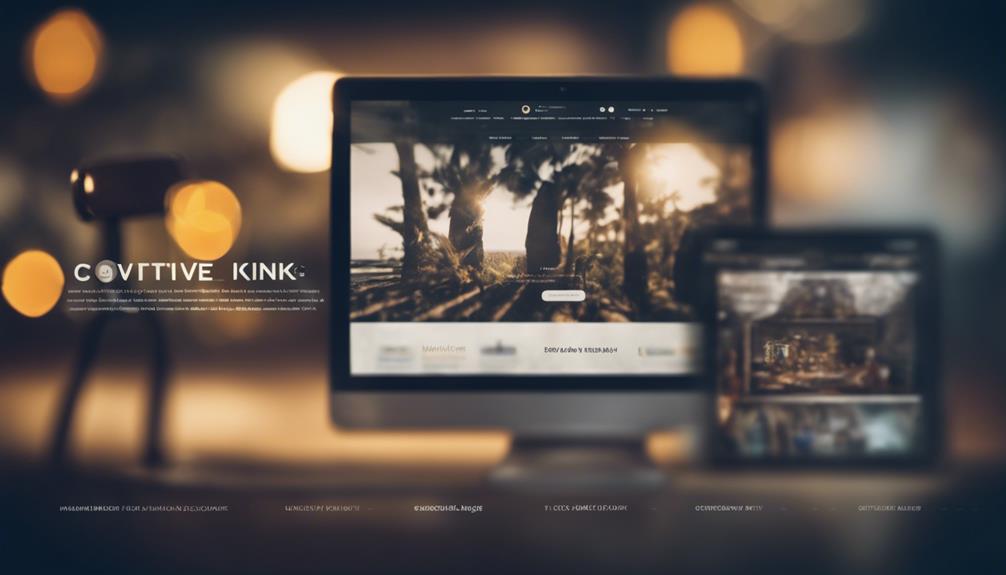In the ever-evolving realm of SEO, the impact of sitewide links in a post-Penguin update is a topic that demands meticulous consideration. As search engines continue to refine their algorithms to prioritize organic and natural link-building practices, the role of sitewide links has come under scrutiny.
Understanding how these links can influence website visibility and rankings in the current digital landscape is crucial for SEO practitioners. By exploring the nuances of sitewide linking post-Penguin, one can uncover strategies to align with Google's expectations and navigate the complexities of contemporary SEO practices effectively.
Evolution of Sitewide Links Post-Penguin

Following the Penguin update, the evolution of sitewide links has been marked by a notable shift towards natural and relevant linking practices to avoid penalties. Previously, sitewide links were often used as a shortcut to boost rankings, leading to penalties post-Penguin due to their association with spammy tactics. Google's emphasis on natural linking post-Penguin has forced website owners to reevaluate their linking strategies. The Penguin update specifically targeted webspam, impacting websites that relied on manipulative linking strategies to artificially inflate their rankings.
In the current landscape, non-natural sitewide links are under scrutiny and risk penalties, highlighting the importance of quality over quantity when it comes to link building. However, sitewide links still hold value when used appropriately, as they can enhance website navigation and positively influence search engine rankings. Moving forward, webmasters must prioritize building links that are contextually relevant and add value to the user experience to align with Google's guidelines and avoid penalties.
Natural Sitewide Linking Criteria
In the realm of SEO optimization, adherence to natural sitewide linking criteria is paramount for sustaining website authority and search engine ranking integrity. Natural sitewide links encompass elements such as copyright credits, designer mentions, and references to related publications. These types of links are generally considered safe for SEO practices and contribute positively to a website's overall authority.
Google places a high value on relevance and natural linking in sitewide connections to prevent penalties and ensure the integrity of search engine rankings. Maintaining relevance between the sites linked by sitewide links is crucial for preserving SEO integrity in the post-Penguin update landscape.
Therefore, prioritizing the acquisition of natural and relevant backlinks over manipulative linking strategies is essential to enhance website credibility and visibility in search engine results. By following natural sitewide linking criteria diligently, webmasters can establish a strong foundation for sustainable SEO success.
Mitigating Risks With Sitewide Links

To minimize the potential hazards associated with sitewide links, a strategic approach to link building is imperative for maintaining SEO health and safeguarding website credibility. Unnatural sitewide links can trigger penalties and significantly harm SEO performance.
Responsible utilization of sitewide links is vital to prevent excessive link building, ensuring that the backlink profile remains natural and relevant. Regularly monitoring backlink profiles is essential to verify the credibility and appropriateness of sitewide linking domains.
Unnatural sitewide links also carry the risks of associating your website with spammy sites and making it susceptible to algorithm updates. Addressing and rectifying unnatural sitewide links involves proactive measures such as contacting domain owners to request removal and utilizing the disavowal process when necessary.
Google's Expectations Post-Penguin
After discussing the risks associated with sitewide links and the importance of responsible link building practices, it is crucial to understand Google's expectations post-Penguin update regarding backlinking strategies. Google now places a strong emphasis on natural and relevant backlinking strategies. Quality has taken precedence over quantity in a bid to avoid penalties and enhance overall SEO performance.
Websites that engaged in manipulative link schemes experienced significant declines in their search rankings, highlighting the importance of adhering to Google's guidelines. Sitewide links with non-natural connections are particularly risky and should be avoided to prevent potential penalties.
Google's stance reinforces the promotion of high-quality content and natural linking practices to boost online visibility effectively. By aligning with Google's expectations post-Penguin, websites can establish a solid foundation for sustainable and ethical SEO practices that prioritize user experience and credibility.
Impact of Sitewide Links on SEO

The repercussions of incorporating sitewide links into SEO strategies post-Penguin are substantial and demand careful consideration. Sitewide links, once a popular method for acquiring backlinks rapidly, now pose a significant risk to SEO ranking potential after Google's Penguin update targeted manipulative link-building practices.
Backlinks with identical anchor text within sitewide links can trigger alarms and result in negative SEO implications. While organic sitewide links may offer minimal SEO advantages, naturally gained ones are less likely to impact SEO rankings negatively.
In the current SEO landscape, diversifying link-building approaches and emphasizing quality over quantity have become paramount. Prioritizing the acquisition of high-quality, relevant backlinks from diverse sources is crucial to maintaining a positive SEO standing post-Penguin.
Striking a balance between link quantity and quality is essential for SEO success in the aftermath of the Penguin update.
Strategies for Effective Sitewide Linking
When considering strategies for effective sitewide linking, prioritizing relevance and brand recognition is crucial for maintaining SEO integrity and avoiding penalties. Utilizing branded anchor text in sitewide links not only enhances brand visibility but also helps in steering clear of potential penalties from search engines. It is essential to ensure a high level of relevance between the linked sites to foster natural linking and boost SEO performance. Excessive sitewide link building should be avoided, and instead, focus should be placed on impactful strategies that provide value to users.
Regular monitoring of backlink profiles is necessary to assess the quality and relevance of domains used for sitewide linking. By following general best practices for link building, such as diversifying anchor texts and acquiring links from authoritative websites, one can maintain a clean link history and enhance SEO outcomes. By implementing these strategies, websites can effectively leverage sitewide links to improve visibility and credibility without risking penalties.
Frequently Asked Questions
What Is a Sitewide Link?
A sitewide link is a backlink present on every page of a website, typically found in the footer, sidebar, or navigation menu. It can be beneficial for user experience but should be used judiciously to avoid potential SEO pitfalls.
What Is the Penguin Google Algorithm Update?
The Penguin Google Algorithm Update, launched in 2012, targets webspam by penalizing manipulative link-building practices. Websites engaging in artificial link schemes saw declines in search rankings post-update. Google emphasizes natural and relevant linking to avoid penalties.
Conclusion
In conclusion, the post-Penguin SEO landscape emphasizes the importance of natural and relevant linking practices, particularly when it comes to sitewide links.
Quality, relevancy, and natural linking strategies are key to navigating the evolving SEO terrain successfully and avoiding penalties.
It is essential to prioritize these factors over quantity to ensure that sitewide links have a positive impact on search engine rankings and overall website visibility.

